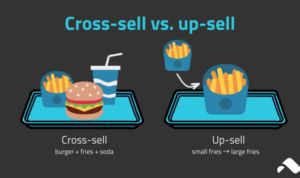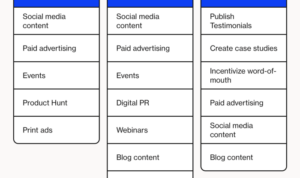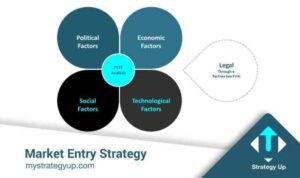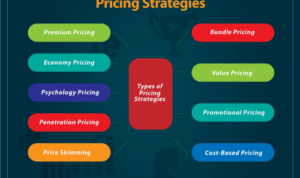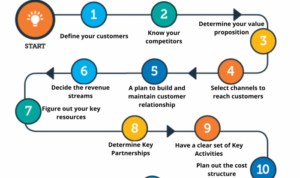As Understanding Lifetime Customer Value takes center stage, this opening passage beckons readers with american high school hip style into a world crafted with good knowledge, ensuring a reading experience that is both absorbing and distinctly original.
When it comes to making those money moves in the business world, understanding Lifetime Customer Value is key. It’s all about knowing how to keep those customers coming back for more and maximizing those profits like a boss.
What is Lifetime Customer Value (LCV)?: Understanding Lifetime Customer Value
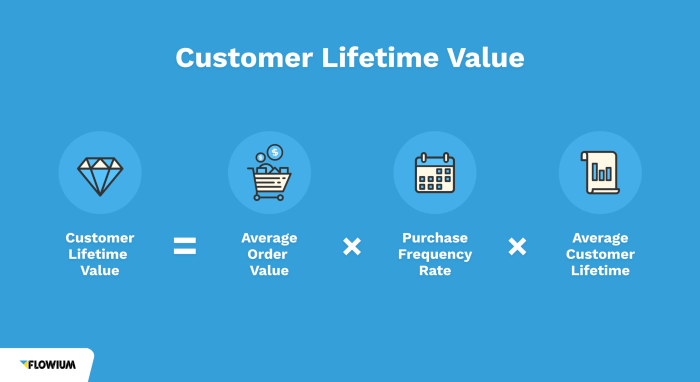
Lifetime Customer Value (LCV) is a metric that represents the total revenue a business can expect to earn from a customer throughout their entire relationship with that customer. It is a crucial measure for businesses as it helps to determine the long-term value of each customer and guides decision-making in terms of marketing strategies, customer acquisition, and retention efforts.
Calculation and Significance of LCV, Understanding Lifetime Customer Value
To calculate Lifetime Customer Value, businesses typically consider the average purchase value, frequency of purchases, and the length of the customer relationship. This information helps to estimate how much revenue a customer will generate over time, taking into account factors like repeat purchases and potential referrals.
LCV = (Average Purchase Value) x (Number of Purchases per Year) x (Average Retention Time in Years)
Understanding LCV is significant for businesses because it allows them to prioritize customer segments with the highest value, allocate resources effectively, and tailor marketing strategies to maximize revenue from each customer. By knowing the lifetime value of a customer, businesses can make informed decisions on how much to invest in acquiring and retaining customers.
Impact of LCV on Decision-Making
– LCV helps businesses identify high-value customers and focus on retaining them through loyalty programs or personalized offers.
– Businesses can use LCV to evaluate the effectiveness of marketing campaigns and allocate budgets to channels that bring in customers with higher lifetime value.
– LCV guides pricing strategies, as businesses can set prices based on the perceived value of their products or services to maximize long-term profitability.
Overall, Lifetime Customer Value is a critical metric that empowers businesses to make strategic decisions that lead to sustainable growth and profitability in the long run.
Factors influencing Lifetime Customer Value
Customer Lifetime Value (LCV) is influenced by various factors that impact the overall value that a customer brings to a business over the course of their relationship. Let’s dive into some key factors that play a crucial role in determining LCV.
Customer Behavior
Customer behavior is a major factor that influences Lifetime Customer Value. Understanding how customers interact with your products or services, their purchasing patterns, preferences, and engagement levels can help businesses tailor their strategies to maximize LCV. By analyzing customer behavior, businesses can identify opportunities to enhance the customer experience and increase repeat purchases.
Retention Strategies
Effective retention strategies are essential for maximizing Lifetime Customer Value. By implementing strategies to retain customers and encourage loyalty, businesses can increase the longevity of each customer relationship. This can include personalized marketing campaigns, loyalty programs, excellent customer service, and proactive communication to keep customers engaged and satisfied.
Customer Segmentation
Segmenting customers based on their needs, preferences, and behaviors can significantly impact LCV. By targeting specific customer segments with tailored marketing messages and offers, businesses can increase customer retention and lifetime value. Understanding the unique characteristics of different customer segments allows businesses to deliver more relevant and personalized experiences, ultimately driving higher LCV.
Customer Satisfaction and Loyalty
Customer satisfaction and loyalty are fundamental in determining Lifetime Customer Value. Satisfied customers are more likely to make repeat purchases, refer others to the business, and become loyal advocates. Building strong relationships with customers through exceptional service, quality products, and positive experiences can lead to increased customer loyalty and higher LCV. It’s essential for businesses to prioritize customer satisfaction and loyalty to maximize the value of each customer relationship.
Strategies to enhance Lifetime Customer Value
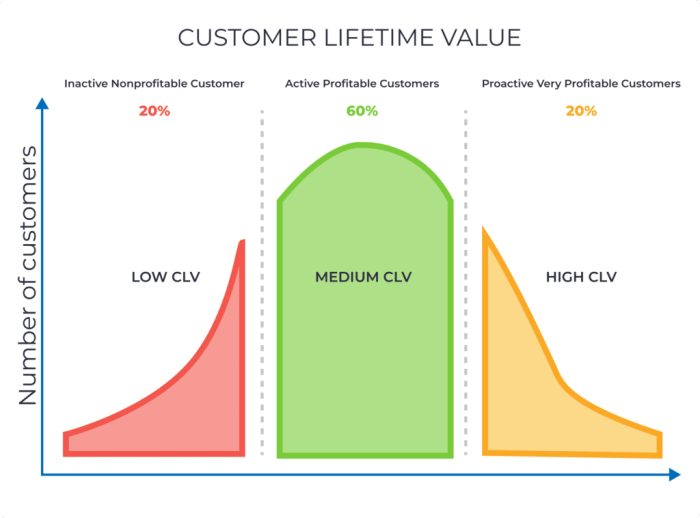
Enhancing Lifetime Customer Value (LCV) is crucial for the long-term success of a business. By implementing personalized marketing approaches, focusing on customer engagement and relationship-building, and leveraging data analytics and customer feedback, companies can maximize the value they derive from each customer.
Personalized Marketing Approaches
Personalized marketing involves tailoring products, services, and communications to meet the individual needs and preferences of customers. By collecting data on customer behavior, preferences, and demographics, companies can create targeted marketing campaigns that resonate with their audience. This approach not only increases customer satisfaction but also boosts retention rates and encourages repeat purchases.
Importance of Customer Engagement and Relationship-Building
Building strong relationships with customers is essential for increasing LCV. Engaging with customers through personalized interactions, providing excellent customer service, and offering loyalty programs can help foster loyalty and trust. By prioritizing customer satisfaction and maintaining open lines of communication, businesses can create long-lasting relationships that lead to increased customer lifetime value.
Role of Data Analytics and Customer Feedback
Data analytics allows companies to gain valuable insights into customer behavior, preferences, and trends. By analyzing this data, businesses can identify opportunities for upselling, cross-selling, and personalized recommendations. Additionally, collecting and acting on customer feedback enables companies to address issues promptly, improve product offerings, and enhance the overall customer experience. By leveraging data analytics and customer feedback, companies can continuously optimize their strategies to enhance LCV.
Benefits of Understanding Lifetime Customer Value
By understanding Lifetime Customer Value (LCV), businesses can gain several advantages that can positively impact their long-term profitability and sustainable growth. LCV insights provide valuable information that can lead to improved customer experiences and increased brand loyalty.
Enhanced Customer Relationships
- Understanding LCV helps businesses focus on building stronger relationships with customers over time.
- By knowing the value each customer brings to the business, companies can tailor their offerings to meet individual needs and preferences.
- Personalized experiences can lead to higher customer satisfaction and loyalty, ultimately increasing customer retention rates.
Maximized Profitability
- By identifying high-value customers through LCV analysis, businesses can allocate resources more efficiently.
- Targeting efforts towards retaining and nurturing these valuable customers can result in increased revenue and profitability.
- Strategies such as upselling and cross-selling to high LCV customers can further boost profits and maximize lifetime value.
Long-Term Sustainable Growth
- Understanding LCV allows businesses to focus on long-term growth rather than short-term gains.
- By prioritizing customer retention and loyalty, companies can establish a solid foundation for sustainable growth over time.
- Consistently providing value to customers can lead to positive word-of-mouth referrals and organic growth opportunities.
